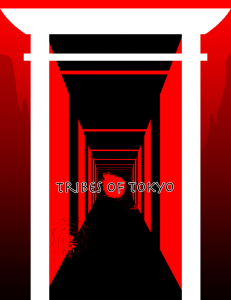 At last, the secrets of the Long Vault will be revealed. Sheng is now trapped in his hideout on the Plateau of Leng. The Ronin must travel to the heart of the Vault and trap the sorcerer within it. Of course, this is easier said than done. What hidden fortress is without its defenses? And even if the Ronin succeed, will their victory even matter? The cosmic forces at work in this conflict are beyond any of their imaginations. Is victory, or even peace truly possible? Join the Ronin as they open the Long Vault!
At last, the secrets of the Long Vault will be revealed. Sheng is now trapped in his hideout on the Plateau of Leng. The Ronin must travel to the heart of the Vault and trap the sorcerer within it. Of course, this is easier said than done. What hidden fortress is without its defenses? And even if the Ronin succeed, will their victory even matter? The cosmic forces at work in this conflict are beyond any of their imaginations. Is victory, or even peace truly possible? Join the Ronin as they open the Long Vault!
Podcast: Play in new window | Download (Duration: 3:21:41 — 92.3MB)
Subscribe: RSS


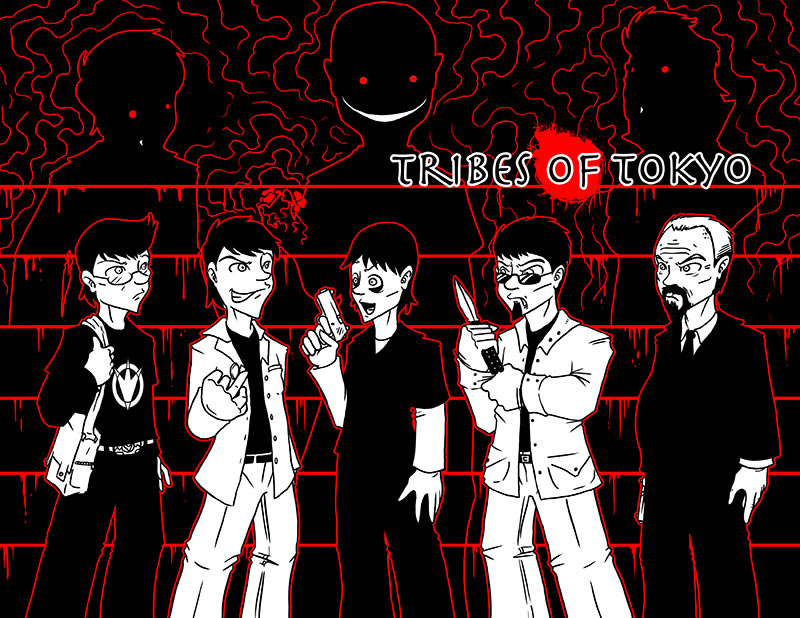
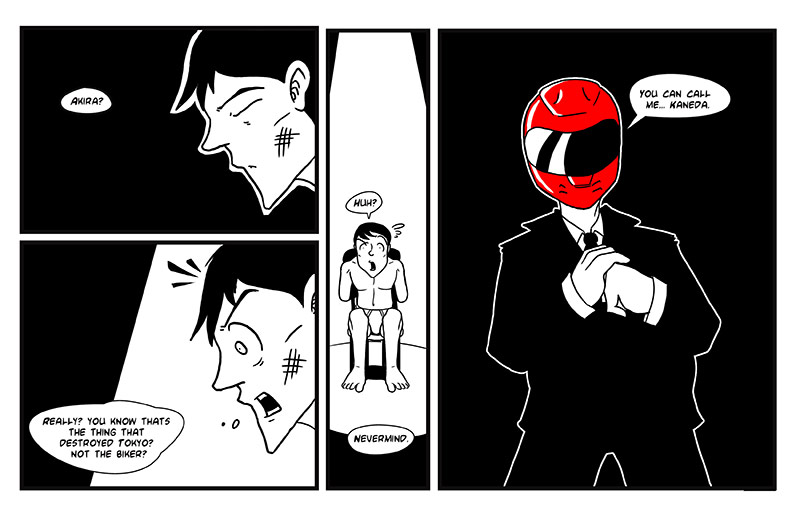
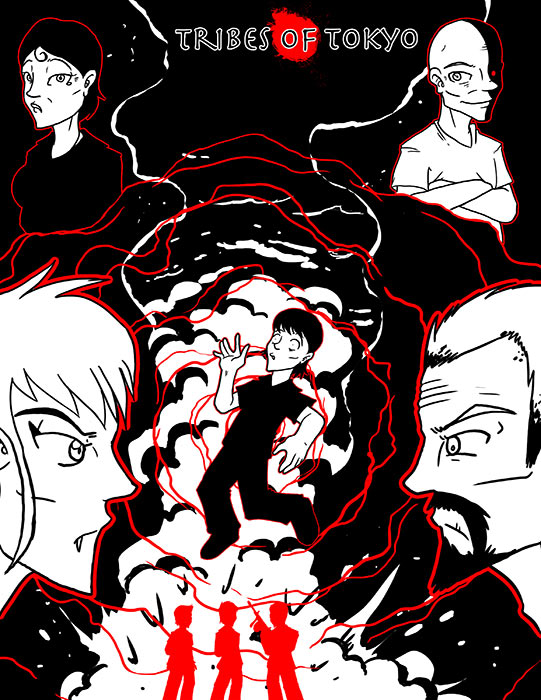
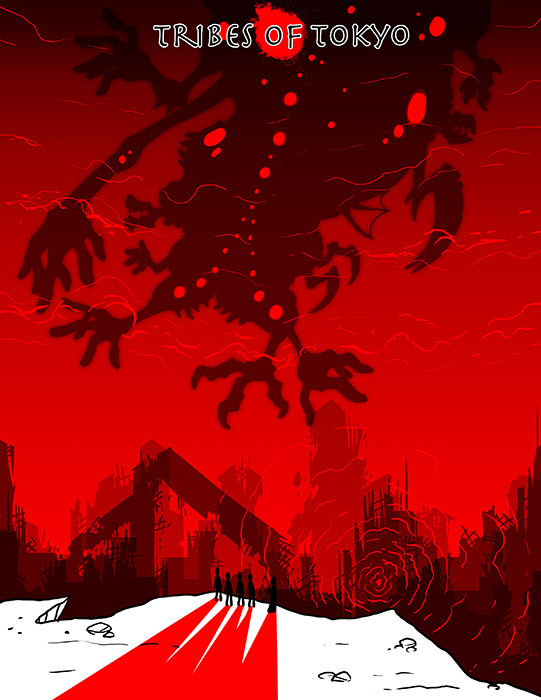
and so it ENDS! so Xing wasn’t Nyarlathotep, pff, fine. you gotta cut Ross some slack with his GM fuckery, Caleb, the calebplans are too powerful for fair play to face down XD
I’d kind of hoped the dealtakers would be pasted hideously into Azathoth’s court, ceaselessly conscious at the center of the universe as atomic specks on the boundless bodies of the ancients. but, y’know, sidestep into Delta Green, that works too.
but yeah! fun campaign. all the insane plans. all of them. I have no idea what’s next! do the forums know? the forums probably know, huh?
And it ends where it began…delta green. The circle is complete.
That was a fantastic final episode. There were quite a few cinematic scenes where I was consciously making an effort to imagine the finer details, and I have to say that the vision of a harried, heavily cut (and girthed) asian ex-policeman picking up and then pressing a burning stone shard down upon the ex-Yakuza’s wounded hand to save his life was one of the most badass of the bunch, something made all the sweeter by the two’s common ending, and the fact you had essentially double-teamed an ancient supernatural samurai. That’s mythos retirement well earned.
So, Caleb, David, you guys get to share my MVP vote for this episode. Possibly this entire series, you had a real good synergy between yourselves. That said, you all did very well, and I’m always pleased to listen to your podcasts. This one was definitely one of your best so far.
Question for Ross.
Why do you keep returning to well of CoC elder gods as a source for all your stories? The new world campaign turned out to be about stopping a great old one from eating the world. The superhero campaign had the Ragnarok event that was more or less a fight with space Cthulhu. And now the Tribes of Tokyo ties into Nyarlathotep.
Now, I’m not saying that these campaigns (and multitude of one shots) area any worse for being based in CoC. But I want to know what makes you keep returning to this source material. So, why? (Please)
The New World campaign’s ‘end boss’ was not specifically a Cthulhu mythos deity, but Tharizdun, who is a listed deity in D&D cosmology. Saving the world from a big bad is hardly unique to the Cthulhu Mythos.
The Heroes of New Arcadia’s Remnant was an homage to Galactus, not Cthulhu. The cosmic bad guy in the cosmic tier was Merlin, the first superhuman in history, who had ascended to cosmic levels.
Tribes of Tokyo was always designed as a Cthulhu Mythos campaign. The Long Vaults came from a poster on the Delta Green and served as the inspiration for the campaign’s central plot.
When I run campaigns, I stay within the conventions of that genre. With fantasy, especially D&D, there is always an escalation of power levels and stakes that means any campaign that reaches epic levels will usually culminate in a ‘fate of the world/universe’ type plot.
With Heroes of New Arcadia, I played with the conventions of the superhero genre, taking common tropes and changing them, but always using them as the original source matter. So, I would dispute your claims that New World and Heroes are Cthulhu-based. A cosmic bad guy does not equal Cthulhu to me. It’s more complex than that. New World is not a horror game. It is fantasy. Heroes of New Arcadia is a superhero game.
This isn’t to say I don’t run a ton of Cthulhu inspired games. I find it fascinating and Delta Green is one of my favorite works of all time. I still have more to say within this genre, and I find it can offer more interesting games and stories than any other genre of horror. When I run out of things to say within the Cthulhu Mythos, I’ll work on something else.
Maybe It‘s just a general feeling I get after listening to you run so many CoC and it‘s bleeding over to my perception of your other work.
I had for example not looked at the The Heroes of New Arcadia’s Remnant as Galactus, although it makes perfect sense now that you say it.
I feel that I‘m forgiven to think of the New World campaign’s ‘end boss‘ as a great old one. Here is the description it him from Wikipedia: „Tharizdun’s is the god of Eternal Darkness, Decay, Entropy, Malign Knowledge, Insanity, and Cold…It‘s worshippers are often insane. Their ultimate goal is to free their dark deity from his prison.“ I think that it‘s safe to say that whoever wrote that deity into Grayhawk had been reading Lovecraft.
Then we come to The Tribes of Tokyo. I find it hilarious that you always planned it as Cthulhu Mythos based campaign. When I started to listen to the later stages of that campaign I kept thinking „Why is he inserting Cthulhu Mythos into this?“ and „I bet he‘ll stick Carcosa in at the end, he always does that“. Because I felt Tribes would work perfectly without any Mythos and I thought you were tagging it on after the fact. Now that you say that it was constructed as a Mythos I feel like a fool.
Thanks for the answer and RPPR.
I’m looking forward to hear your Eclipse Phase campaign .
We discuss the gradual reveal of the Cthulhu Mythos in Tribes of Tokyo in an upcoming episode of RPPR. One of my design goals was to run a game where the Mythos was only introduced where it made sense in the narrative. So many Cthulhu games signal the Mythos right off the bat, when it makes no sense. I wanted a more Delta Green feel, where characters could play an entire game and not necessarily realize the connection.
Glad you enjoyed the campaign! The Eclipse Phase campaign won’t go online until I get back from China, but we have more Better Angels, Base Raiders, and more coming your way in the next month.
I kinda like the general nerd tendency to hook things back into the Cthulhu mythos. it’s weird, it’s versatile, and it doesn’t carry with much specific baggage that’s likely to rub people the wrong way apart from connoting a certain tone.
I’ll agree with Fridrik, Ross, and say that because you run so many Mythos or general Cosmic Horror games, especially with recurring themes, whenever you bring up those things in context of another genre, it looks to everyone else that everything is Cthulhus in Carcosa.
Whether or not that’s subconscious bias on your part or our part is a question for the ages.
I know it’s been said before but the campaign art has been great for this run.
What a great campaign. Thank you, RPPR, for sharing your sessions with us random people in the internet.
Some thoughts & opinions:
Tom, Jason, Aaron and David did a great job role-playing their characters, but Caleb definitely stole the show as Haru. My favorite parts of the Tribes of Tokyo all had to do with Haru scheming up operations and seeing them develop in-game. Operation Black Dolphin was an extremely awesome moment of Player-GM collaboration to influence the story. Empty 5 rules!
Ross did a great job setting up the Conspyramid, and unraveling it was very interesting. Tokyo as a setting worked really well, and I’m glad Ross had done so much research to make it feel ‘real’. And of course, the vampires were really cool, and I liked how the more the players researched them, the more afraid they were as they saw the vampire’s abilities.
The only criticism I might have is that, much like the New World and The Heroes of New Arcadia, the starting street-level sessions were more fun to listen to than the endgame oh-shit-we-are-fighting-world-destroying-villains-beyond-time-and-space sessions. I understand that escalation is necessary for the endgame, but I think you guys should experiment with a more grounded finale. Just a thought.
Otherwise, it was an amazing campaign and I can’t wait for the next one. (Eclipse Phase, here we go again!) 😀
Great campaign, everybody.
That was a hell of an ending. I was kind of wondering if Aaron was going to get eaten or make it out. I also loved that two people did the boss fight instead of the whole team. I think it’s my favorite part of the whole campaign, not the one moment but the constant Wiley Coyoteing to death of magic monsters.
This has been such an epic story that I can’t help but feel a bit sad to see it end. Excellant story telling and role playing by all those involved.
I for one like the mythos inclusions in this story. While I’m certainly a lifelong fan of Lovecraft’s creations, I believe the best part of this experience was seeing how different story lines from different games intertwined. I loved the Iron Banded Box. The tie in with both games was a bit of a treat.
With that said, I’ve only been listening to actual plays since this past fall. Aside from the Iron Banded Box, what other games was referenced? I’d love to get a chance to enrich this experience.
There are no other direct tie-in games to this scenario. I do like to think that the rescued panda was the grandfather of the panda crime boss in Know Evil.
I feel it necessary to point out that, contrary to his protestations in this session, Caleb *did*, in point of fact, make you guys make WILx3 tests when Manjappa offed himself–just because he was supertranshumanly fast in doing so.
And see, that just goes to show that Caleb is a Horrible Monster, just like Ross. But really, isn’t there a little bit of a Horrible Monster in all us, waiting patiently whilst hungering for the blood and sanity of players?
Oh, also this was a really cool campaign and stuff. Good job Ross! (You monster.)
Unfortunately, not being very familiar with Delta Green, I missed most of the references in the epilogue scenes. Anybody wanna help me out a bit?
A great campaign, a lot of fun, and very thematic.
Key phrases in the campaign:
Nick of Time
Bigger Booms
Japanese David Bowie
Jump In
Tokyo Drifting
Reverb
Black Dolphin
Vampires
Gunfights
You could give those keywords to anyone, and end up with a very interesting game. The Night’s Black Agents engine is puzzling, but effective at thematically representing the genre. I’m wondering what NBA’d do for an X-COM themed game.
I very much enjoyed the Mythos overtones/background set in a modern Tokyo, with the blend of contemporary and ancient Japanese themes. The tie-in to the Iron Banded Box was cool(why is everyone looking at Tom?!).
This campaign got me way more interested in the Gumshoe rule system, and I was alternately pleased by the ease of use, and dismayed by the “wonkiness” of the ability/skill pool system. “I’m all out of shooting points, does someone else want to shoot the vampire?” Listening to the postmortem now, maybe there will be some discussion about that.
What a ride – great job on this game. In this session I especially enjoyed David’s commitment to his melodramatic hook (in Feng Shui terms) of being a vengeful yakuza, even (particularly) when it was tactically unsound.
“We are already dead but we can save others” does seem like a super-Japanese mindset. I thought it was very cool how it was set up and then became a point of pride.
I really enjoyed the little touches throughout that Ross did to make Japan more vivid as a setting. Operation Black Dolphin and the follow-up at the G-Cans was just awesome all around.
I did still have some questions at the end!
As someone who hasn’t listened to any other Ross campaigns yet, what was Mitchiko’s name at the end? Was it Bhalgren or as aspect of Nyarlathotep?
When Tom’s character had his first real trip on reverb, who was he talking to? Was it a future version of himself?
I thought the mythos elements definitely changed the scale of the game – in particular, between episode 10 and 11, it felt like it’d be hard to go back to casing a cult compound after seeing the ultimate fate of humanity. (If you believed it). Fortunately the player characters had a rather strong sense of purpose.
The time aspect was neat if a little brain-bending at times. It also gave me the idea to make my players fight alternate timeline versions of themselves in a Dungeon World finale, so thanks for that bit of inspiration.
The Traveler was a Yithan, right? Had the Travelers showed up in another RPPR game? Aaron seemed familiar with them.
I have a bunch of thoughts on the Gumshoe system (I liked it a lot and how it leads to shifting spotlight time and plans involving multiple people) but this is already long so I’ll listen to the post-mortem first.
One last question – was that Reiko in the long vault? What was Sheng’s plan for her?
I didn’t quite understand why the players took her out so quick? Assuming that anything Sheng was up to should be stopped?
I can’t stop laughing at the thought that Sheng had Balgrim imprisoned all this time. I think it was pretty clear that Ross’s intention was that she is actually Nyarlathotep, if for no other reason than that she sent the PCs to the world of Delta Green.
Aaron used the Yithians in at least one of his own scenarios. I suspect he’s read “The Shadow Out of Time”. He’s a devout Whovian, and people frequently compare the Yithians and the Time Lords.
Haha. It sounds silly when you put it like that.
I just remembered hearing that Balgrim shows up in everything at some point. But in retrospect, I would’ve recognized the voice from No Soul Left Behind.
Thanks for the clarifications!